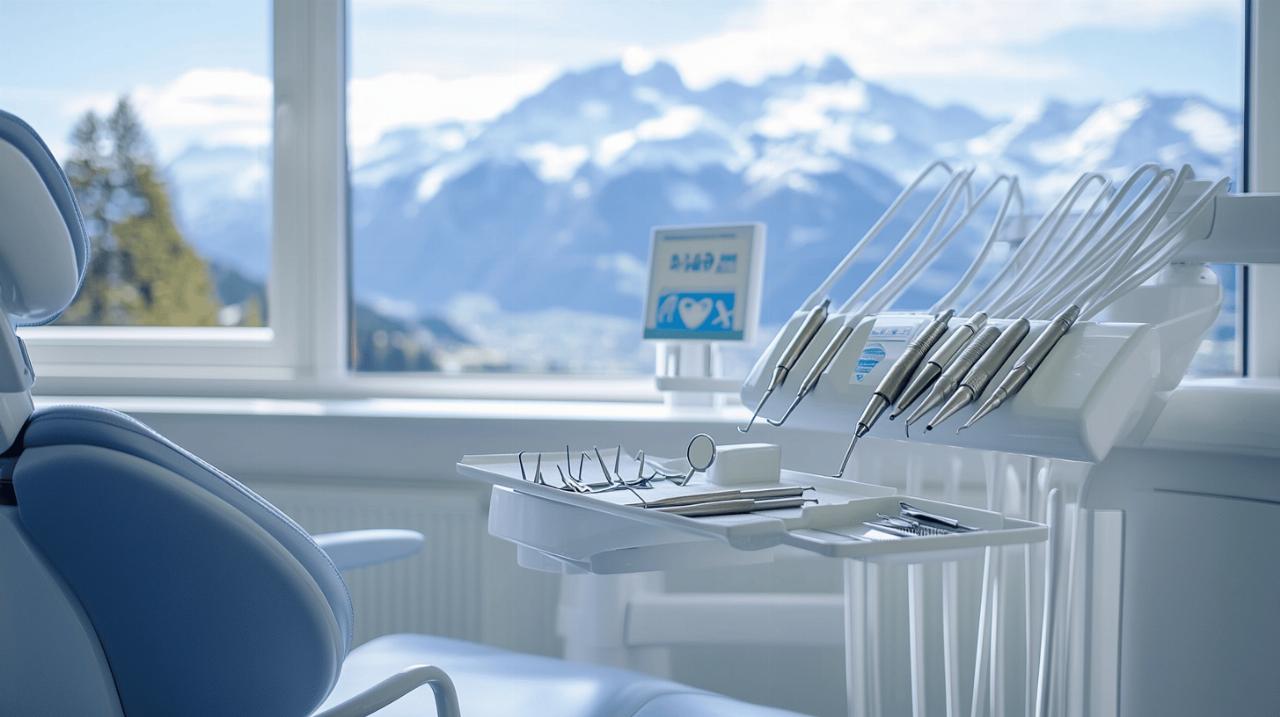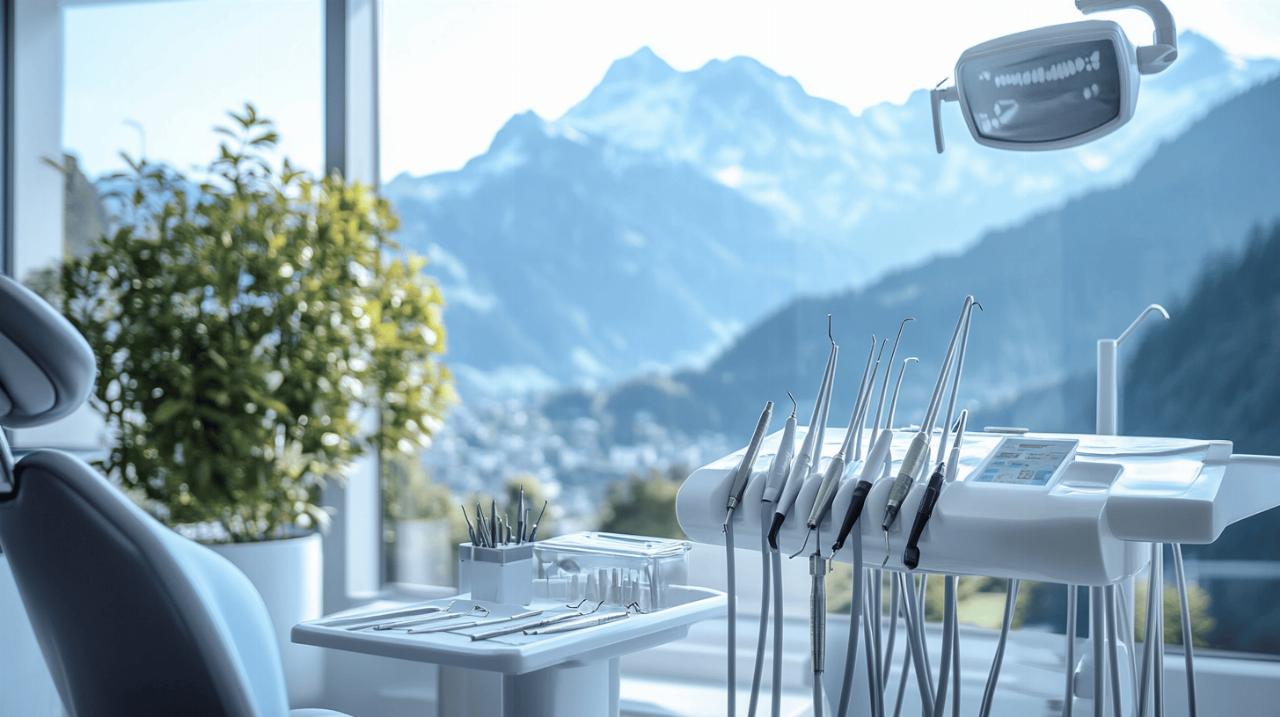Becoming a dentist in Switzerland: what you need to know about language requirements before starting your studies
Embarking on a journey to become a dentist in Switzerland is a well-structured process that requires careful consideration of educational requirements, language proficiency, and professional recognition procedures. Switzerland's reputation for excellence in healthcare extends to its dental education, making it an attractive destination for aspiring dental professionals.
Understanding swiss language requirements for dental studies
Regional language proficiency needed for university admission
Switzerland's multilingual nature directly impacts dental education and practice. Before even applying to a Swiss dental programme, you must demonstrate proficiency in the language of instruction at your chosen university. For institutions in French-speaking regions like the University of Geneva, you'll need strong French skills. Similarly, universities in Bâle, Berne, and Zurich conduct their programmes in German. This language requirement isn't merely an administrative hurdle—it's fundamental to your success as a student and future practitioner, as you'll need to communicate effectively with patients, understand complex medical terminology, and collaborate with colleagues in clinical settings.
Certification options and minimum language levels
Most Swiss universities require formal certification of your language abilities before admission. The specific level required typically corresponds to B2 or C1 on the Common European Framework of Reference for Languages, though this may vary by institution. You can demonstrate your proficiency through recognised exams such as DELF/DALF for French or TestDaF/Goethe-Zertifikat for German. Some universities may offer their own language assessment as part of the admissions process. Securing appropriate language certification should be one of your first priorities when planning to study dentistry in Switzerland, as this requirement cannot be waived and directly impacts your eligibility for university registration via Swissuniversities by the crucial 15th February deadline.
The Educational Pathway to Becoming a Swiss Dentist
Bachelor's Degree in Dental Medicine at Swiss Universities
The journey to becoming a Swiss dentist begins with obtaining a Bachelor's degree in dental medicine, which takes three years (six semesters) to complete. Interestingly, the first two years of dental studies follow the same curriculum as human medicine, providing a comprehensive foundation in basic sciences. It's only in the third year that the dental-specific training begins, introducing elements of propaedeutic and clinical dentistry. Switzerland offers limited spots for dental education—University of Geneva provides 80 places, Bâle offers 32, Berne has 40, and Zurich accommodates 50 students. The relatively affordable tuition fees make these programmes accessible, ranging from 500 CHF per semester at the University of Geneva to 850 CHF at the University of Bâle, though international students may face higher fees at some institutions.
Master's programme and clinical training requirements
Following your Bachelor's degree, you must continue with a Master's programme in dental medicine, which requires an additional four semesters (two years) of study. This phase focuses intensively on clinical experience and daily medico-dental activities, providing the hands-on training essential for professional practice. Throughout this period, you'll develop expertise in various dental procedures including clinical examinations, scaling, cavity treatments, radiography, and treating conditions like gingivitis. The Master's programme also introduces more complex procedures such as minor surgeries under local anaesthetic, tooth extractions, periodontal interventions, and the placement of prostheses or implants. Upon completing your Master's degree, you become eligible to take the federal dentist diploma examination, which serves as the official qualification to practice dentistry in Switzerland.
Practical experience and qualification recognition
Mandatory internships and their language components
After completing formal education, most Swiss dental graduates embark on a period of practical training. While not strictly mandatory, young dentists typically work as assistants for three to five years in various settings such as universities, private practices, or hospitals. This apprenticeship phase proves invaluable for gaining real-world experience and developing professional networks. During this period, your language proficiency becomes even more critical as you interact with patients from diverse backgrounds and collaborate with experienced practitioners. The practical experience you gain serves as a bridge between academic knowledge and independent practice, preparing you for the responsibilities of managing your own patients and potentially your own dental practice in the future.
Getting your dental qualifications officially recognised
For dentists with foreign qualifications, Switzerland has established clear pathways for recognition. The Commission for Medical Professions (MEBEKO) manages this process, offering direct recognition for qualifications from EU/EFTA countries that meet specific standards. Those with at least three years of clinical experience whose degrees are recognised by an EU/EFTA state may qualify for indirect recognition. Otherwise, completing a Swiss university course and passing the federal examination becomes necessary. The application process involves submitting relevant documentation and paying a fee of approximately 800-1,000 CHF. This systematic approach ensures that all practicing dentists in Switzerland maintain the high standards for which Swiss healthcare is renowned, regardless of where they received their initial training.
Navigating the Swiss Healthcare System as a Dentist
Professional Communication with Patients and Colleagues
Working as a dentist in Switzerland requires more than technical skill—it demands excellent communication abilities. Daily practice involves explaining complex procedures to patients, providing hygiene advice, and coordinating care with other healthcare professionals. Your regional language proficiency directly impacts patient trust and satisfaction, particularly when discussing sensitive matters like treatment options, costs, and potential complications. Additionally, administrative communication forms a significant part of your professional responsibilities, including maintaining detailed patient records and corresponding with insurance providers. For dentists managing their own practices, communication extends to supervising staff and ensuring smooth operation of all aspects of the dental office.
Understanding insurance policies and practice management
The Swiss healthcare system operates differently from many other countries, with implications for dental practice. Unlike general medical care, routine dental treatments are typically not covered by the basic health insurance (Grundversicherung/Assurance maladie de base), making it essential to understand insurance policies and billing procedures. Dentists must be adept at practice management, including appointment scheduling, financial administration, and compliance with health regulations. Many practitioners now use digital tools like the OneDoc software suite to streamline these processes, offering features such as online booking, SMS appointment reminders, and integrated billing systems. Career prospects for dentists in Switzerland remain strong, with newly qualified professionals earning approximately 8,000 to 10,000 CHF monthly, potentially increasing to 25,000 CHF or more with experience in private practice.
Career Opportunities and Specialisations for Dentists in Switzerland
The Swiss dental profession offers a diverse range of career paths following completion of your Bachelor's and Master's degrees in dental medicine. Swiss dental qualifications are highly regarded worldwide, providing excellent employment prospects both domestically and internationally. After obtaining your Federal Diploma of Doctor of Dental Medicine, you'll typically gain valuable experience as an assistant dentist for 3-5 years before deciding your long-term career direction.
Most Swiss dentists earn between 100,000 and 150,000 CHF annually, with newly qualified practitioners starting at approximately 8,000-10,000 CHF monthly. This can increase substantially with experience and specialisation, potentially reaching 25,000 CHF or more for established dentists in successful private practices.
Private Practice vs Employment in Dental Clinics
When starting your dental career in Switzerland, you'll face the important choice between private practice and employment in established dental clinics or institutions. Private practice offers greater autonomy and potentially higher earnings, but comes with significant administrative responsibilities including appointment scheduling, billing, staff management, and regulatory compliance. Many dentists choose to join existing practices or form partnerships to share these responsibilities and costs.
Employment positions in institutions such as hospitals or public health centres provide more structured working hours and reduced administrative burden. These roles are particularly valuable for gaining experience after graduation. Job opportunities exist throughout Switzerland, though they tend to be more plentiful in rural areas compared to major cities like Zurich, Geneva, Bâle and Lausanne.
Advanced specialisation pathways and continuing education
Continuing education is both a legal requirement and ethical obligation for Swiss dentists. The profession offers several recognised specialisation paths that can enhance your career prospects and earning potential. These specialisations require additional training beyond your basic dental qualification.
Key specialisation options include orthodontics (with a 4-year Master's programme available in Geneva), oral surgery, periodontology, and reconstructive dentistry. The University of Geneva also offers 2-year Master's programmes in paediatric micro-invasive dentistry, aesthetic micro-invasive dentistry, and digital dental technologies. These specialisations are formally recognised by MEBEKO (Commission for Medical Professions).
Some dentists choose academic paths in research or teaching at Swiss dental universities. With Switzerland's bilateral agreements, qualified dentists may also practice in certain EU countries, expanding international career opportunities. Regular participation in professional development ensures you maintain current knowledge and skills throughout your career.
